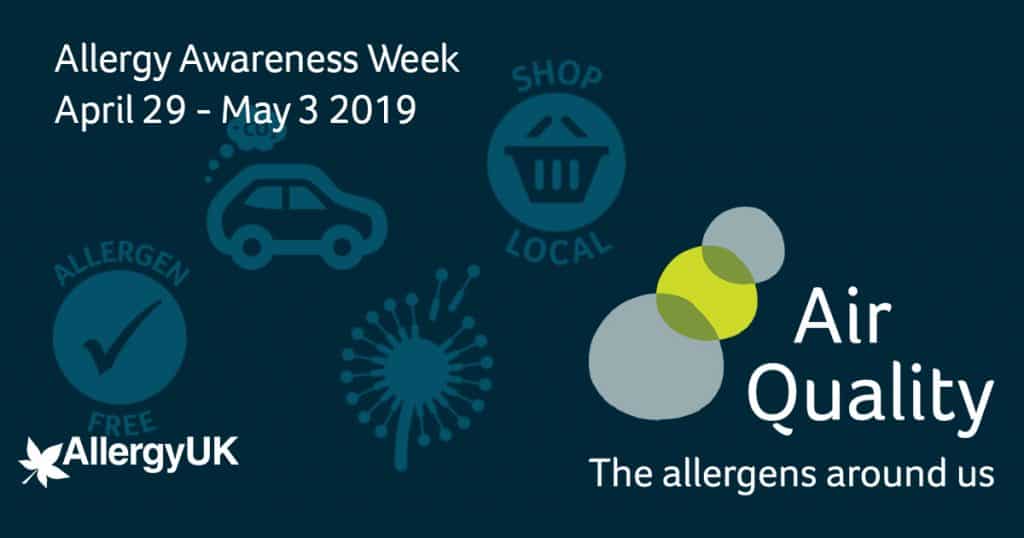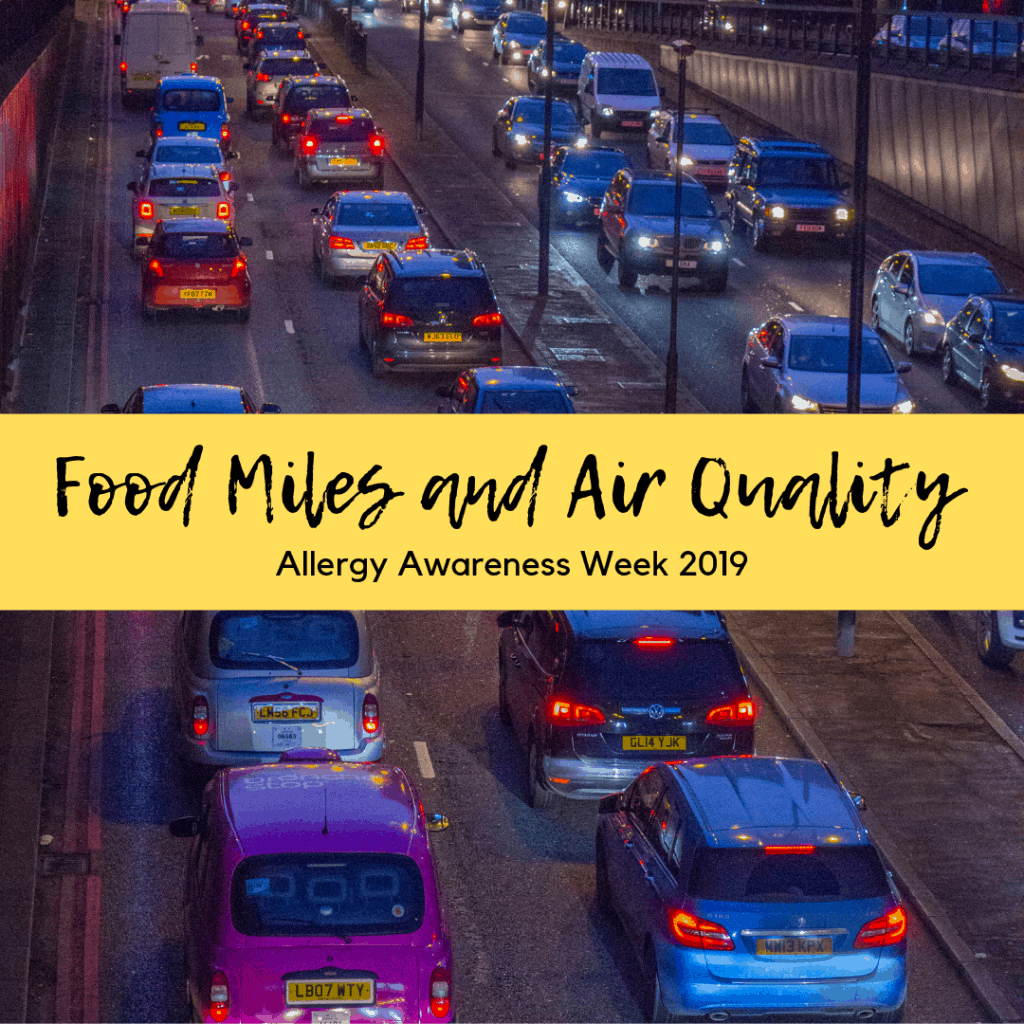You may wonder why a food allergy blogger is writing about food miles. Well it's all part of Allergy Awareness Week 2019. The focus this year is on air quality. Air quality can have a huge impact on those suffering with asthma, hayfever, and other respiratory allergies. Allergy UK, the national charity for those affected by allergic disorders, is asking us to think about what we can do to help. Making small changes to our behaviour can make a big difference. These changes also benefit the environment as they reduce pollution and greenhouse emissions.
Air pollution is the top environmental risk to human health in the UK, and the fourth greatest threat to public health after cancer, heart disease and obesity. It makes people more susceptible to respiratory infections and other illnesses and it can have a significant impact on those living with allergies.
Outdoor Air Quality - Why it Matters, Allergy UK

Food Miles
One of the things you can do to help those affected by air pollution is to reduce the amount of driving you do. And it's actually your trip to the supermarket that makes the biggest difference to the amount of emissions created by your food's journey to your table. Traffic plays a huge part in air pollution and is now the biggest threat to clean air. In the same way that people with food allergies and other special diets need consideration from others, people whose health is affected by air pollution need us to help them.
"Food miles" refers to how far your food has travelled from farm to table. By making changes to the way you shop, you can dramatically reduce the distance your food has to travel. As a food blogger I wanted to share some of the ways I have chosen to reduce my food miles to reduce air pollution.

Shop Online
One of the easiest changes you can make to reduce your food miles is to do your supermarket shopping online. Most of the big supermarkets now offer online shopping so it's something that everyone can do. Having your food delivered saves on individual car trips to the supermarket.
The final step of your food's journey - your trip to the supermarket - uses the most energy. Getting food shopping delivered eliminates individual journeys. A van delivering to, say, 40 houses can be more efficient than 40 families going out shopping separately in their own cars.
However how much of a difference this makes depends on several factors, such as how many other deliveries are booked on the same route, and the fuel economy of the van that is used to deliver the food. I shop with Ocado. They show you when their van is already going to be in your local area with their 'green van' symbol. (They also have an amazing range of free from products, which is the main reason I shop with them). Admittedly I don't always choose this option if another time is more convenient, so this is one change I will be looking to make.
Of course, if you can walk or cycle to the supermarket that's undoubtedly the best option in terms of air pollution.
Veg Box
Getting a weekly veg box delivered is another easy way to reduce your food miles. There are national veg box schemes which deliver across the country. These give you the most choice in what you buy. However they will still have some food miles, as produce is delivered to a central warehouse before being distributed. An extra bonus is veg box schemes use much less packaging than shop bought food.
The best option for reducing food miles is to order a veg box from local scheme. You can't choose exactly what you get, but you will get fresh veg that is as local as it gets. Unless you grow your own of course, but that's one job I've personally decided to outsource! A local veg box scheme will have minimal food miles. as the local producer delivers straight to your door.
When you get a local veg box, you have to be more flexible about how you cook. Our veg box comes every Wednesday. On that day, I cook a simple "meat and two veg" type meal. Then I can easily incorporate whatever arrives that week. You can also use the veg up in soups, stews, salads, buddha bowls and more.
It's changed how I cook and made me more creative.
Other benefits to buying a veg box:
- It's much cheaper buying direct from the producer.
- It gives you a greater variety in your diet,
- The food is always 'in season' so it's very tasty.
- It's a great way to support food producers in your local area.
- The food is much fresher, as it hasn't had to travel long distances to get to you.
To find local veg box schemes in your area, search for "veg box + [town]"
Farmer's Market
Another great option is to shop at your local farm shop or farmer's market, especially if you have one within walking distance. It gives you more flexibility than a veg box as you can choose what you want to buy. The food miles are much, much lower than buying from the supermarket.
Shop Local to Reduce Food Miles
This Allergy Awareness Week, make simple changes to the way you shop to help improve air quality . You can shop online, get a weekly veg box, and shop at local farmer's markets. This reduces your food miles and therefore air pollution. If you'd like to know more about air quality and allergies, visit Allergy UK.
Does air pollution affect your health, or someone you know? What steps are you taking to help improve air quality?


Leave a Reply